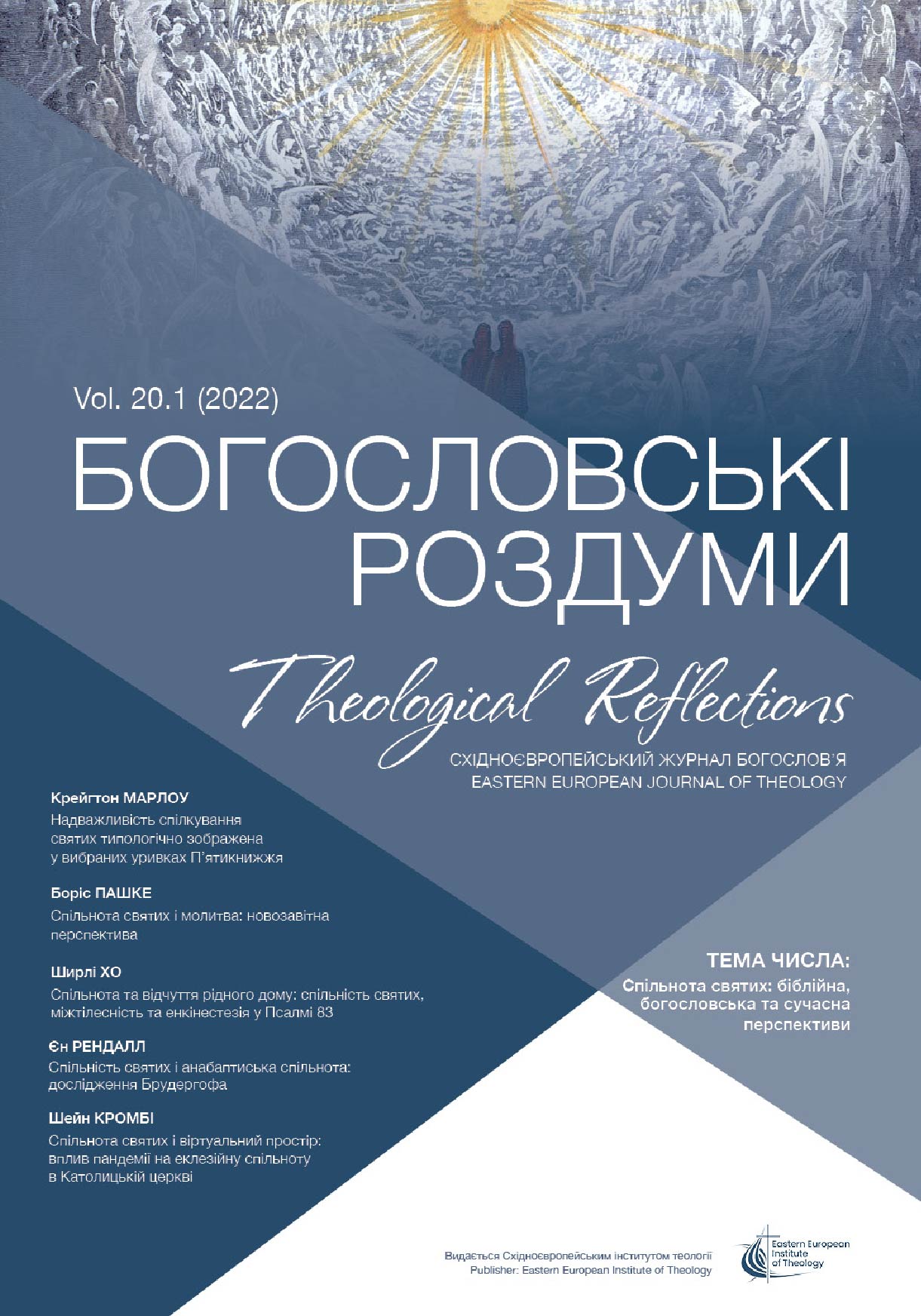The Cruciality of the Communion of the Saints
As Typologically Reflected In Selected Pentateuchal Passages
DOI:
https://doi.org/10.29357/2789-1577.2022.20.1.1Keywords:
communion of the saints, Hebrew Bible, PentateuchAbstract
The “communion of the saints” is usually considered a New Testament topic. It appears in the Apostles’ Creed as a mandatory commitment for church orthodoxy and orthopraxy. However, the Old Testament Hebrews were also a faith community and committed to beliefs and behaviors (at least “on paper”) that enable and enhance communion and fellowship as well as exclude actions that cause division and dissension, which can lead to discouragement, disengagement, and even destruction. Consequently, the Hebrew Bible can offer, at least typologically, statements and stories that illustrate how crucial communion and community were for God’s OT people, and anticipate the same for the NT churches. This article will make use of selected passages in the Pentateuch that provide mainly data about what would prevent or pervert communion among ancient Hebrew believers inYahweh, which provides principles applicable to modern Gentile believers in Jesus as the Christos.
Downloads
Published
How to Cite
Issue
Section
License
Copyright (c) 2022 Creighton Marlowe

This work is licensed under a Creative Commons Attribution-NonCommercial 4.0 International License.
All articles published in the Journal are distributed under a Creative Commons Attribution-NonCommercial 4.0 International License
By submitting an article for publication in Theological Reflections: Eastern European Journal of Theology the author grants the editors the right to publish the article and distribute it in electronic and print form.
The author reserves all copyrights and the right to use the materials of the article in whole or in part for educational purposes, to write his own dissertations, to prepare abstracts, conference reports, oral presentations, etc., as well as post electronic copies of articles (including the final electronic version downloaded from the journal’s official website) on non-commercial web-resources without the consent of the editorial board and founders.



